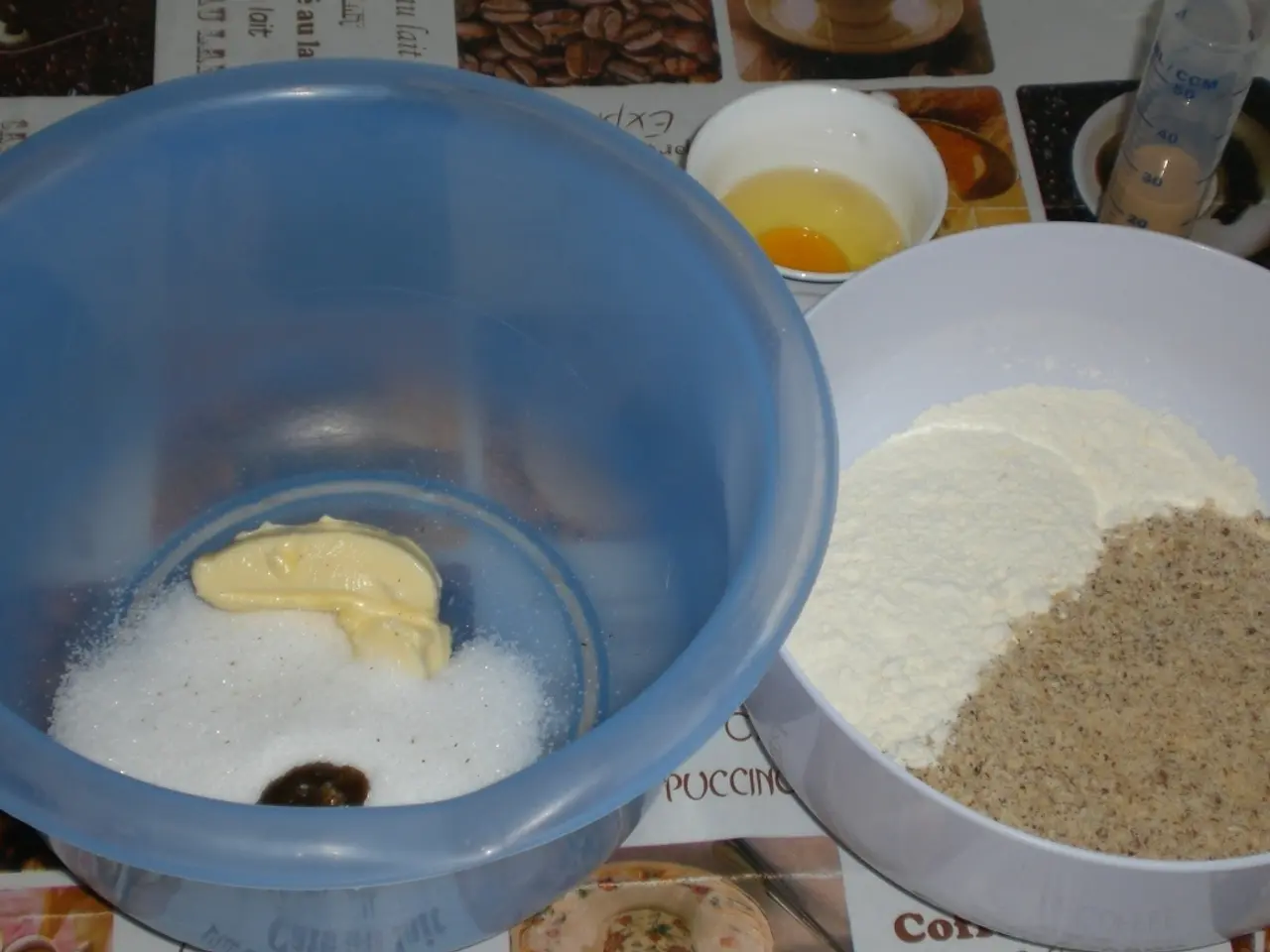Abdominal Enlargement: Reasons, Signs, and Solutions
Abdominal bloating, a common condition that causes discomfort and a full feeling in the belly area, can be a sign of various underlying health issues. While temporary bloating due to diet, overeating, or gas from swallowing air is usually harmless, persistent bloating could indicate a serious condition and should be evaluated by a doctor.
One of the most common causes of persistent bloating is Irritable Bowel Syndrome (IBS), a digestive disorder characterised by abdominal pain, bloating, and changes in bowel habits. Another potential cause is Small Intestinal Bacterial Overgrowth (SIBO), where excess bacteria in the small intestine can lead to chronic bloating and digestive discomfort.
Other key causes to be aware of include Celiac Disease or Gluten Sensitivity, Lactose Intolerance or other food intolerances, Constipation, Appendicitis, and Ovarian or Gastrointestinal Tumors. These conditions, though rare, can cause persistent bloating and should be ruled out if symptoms are severe or worsening.
Red flags indicating the need for prompt medical evaluation include unexplained weight loss, blood in stool, severe or worsening abdominal pain, long-lasting or frequently recurring bloating, changes in bowel habits that worsen or persist, and persistent constipation.
In contrast, diseases such as diabetes or hypothyroidism, or certain gastrointestinal surgeries, can sometimes cause gastroparesis, a disorder that affects the regular emptying of the stomach. Chronic bloating caused by fluid retention could indicate a more serious condition such as liver or kidney failure or diabetes.
Gynecological problems like a monthly period, menopause, endometriosis, or early ovarian cancer can also cause bloating. Indigestion, or dyspepsia, is another common cause of bloating and discomfort in the stomach. Stomach infections, such as those caused by Escherichia coli, Helicobacter pylori, norovirus, or rotavirus, can also lead to bloating.
For most people, the cause of bloating can be treated at home and is usually something simple. Home remedies like eating peppermint, using a heating pad, or taking Over-The-Counter (OTC) medications can relieve bloating quickly. Lifestyle changes, OTC medications, food supplements, antacids, bismuth salicylate, laxatives, rectal suppositories or enemas, antispasmodics, certain antibiotics, prokinetics, or certain antidepressants can help treat bloating.
However, a person should see a doctor for bloating associated with intense pain, fever, vomiting lasting longer than 24 hours, difficulty keeping food down, bloody stool, a physical injury, rapid swelling of the abdomen, surgery, liver or kidney failure, or sudden changes in bowel movements with frequent bloating.
In conclusion, while bloating is a common condition, persistent bloating could indicate a serious health issue. It is essential to seek medical attention for proper diagnosis and treatment if symptoms persist or worsen.
- Ulcerative colitis, a type of inflammatory bowel disease, can cause chronic bloating and diarrhea, requiring medical evaluation.
- Bipolar disorder, a neurological condition, while not directly related to bloating, may require medical attention due to its impact on overall health and wellness.
- Food allergies, such as lactose intolerance, can lead to bloating, constipation, and other digestive discomforts.
- The digestive system plays a crucial role in foodandfoodbenefits, and chronic bloating could be a sign of an underlying digestive-health issue.
- Predictive science and medical-conditions research are essential in understanding the causes of chronic diseases like Crohn's disease, which can cause persistent bloating and other symptoms.
- Depression and anxiety can cause gastrointestinal symptoms, including bloating, leading to a vicious circle of digestive-health problems and mental-health issues.
- GERD, or Gastroesophageal Reflux Disease, can cause bloating, indigestion, and heartburn, negatively impacting cardiovascular-health and overall health.
- COPD, or Chronic Obstructive Pulmonary Disease, though not directly related to bloating, is a chronic-disease that affects both eye-health and hearing, requiring medical attention.
- Skin-care is essential in maintaining overall health, but certain skin-conditions, such as psoriasis, can cause bloating when affective areas are impacted.
- Therapies and treatments, such as cognitive behavioral therapy and various medications, can help manage symptoms of chronic conditions like bipolar disorder and COPD.
- Nutrition plays a significant role in the prevention and management of chronic-diseases, including cancer and diabetes, which can cause various digestive-health issues like bloating.
- Women's health encompasses a wide range of issues, from reproductive health to mental health, and can include symptoms like bloating.
- Medications like CBD oils are being studied for their potential in treating neurological-disorders and managing conditions like depression and anxiety.
- Medicare, the federal health insurance program for seniors, can provide coverage for various therapies and treatments, including those for digestive-health issues and chronic diseases.
- Fitness and exercise can help improve overall health, regardless of whether one is experiencing bloating or not, as they contribute to cardiovascular-health and wellness.
- Skin-care routines should be followed even when bloating is an issue, as stress and poor health can exacerbate skin-conditions, such as acne or eczema.
- It's crucial to seek medical attention for persistent bloating, as it could be a sign of a more serious health issue like colitis, GERD, or ovarian cancer.




